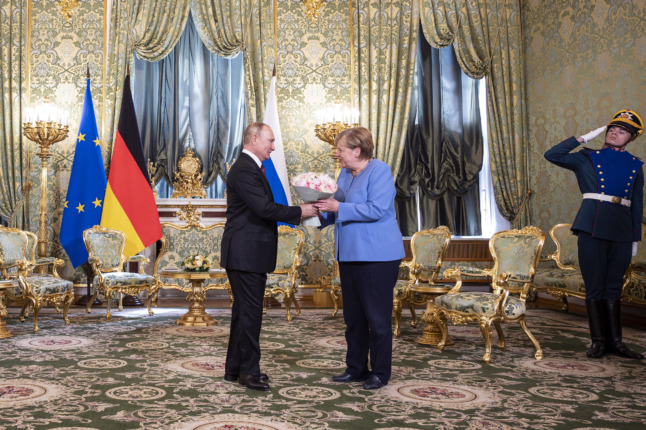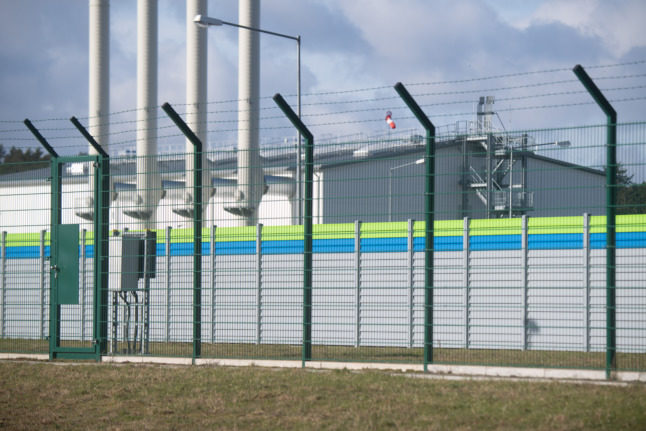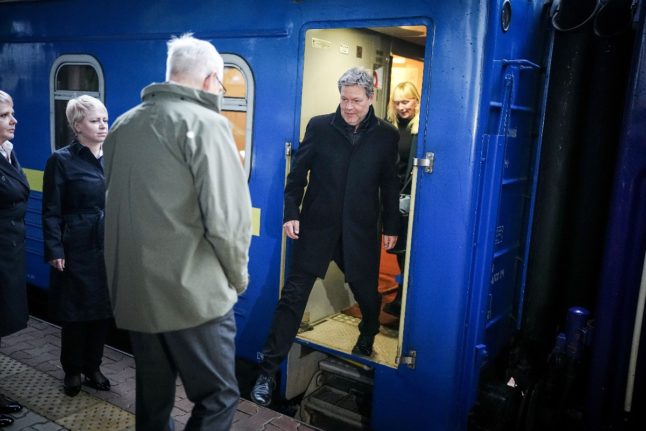Putin’s recognition of two breakaway regions in Ukraine prompted Western countries to respond with a raft of sanctions, with Chancellor Olaf Scholz pulling the plug on the controversial Nord Stream 2 pipeline from Russia.
Moscow’s aggressive steps had “changed” the situation, Scholz said, and thrown into question Germany’s energy security if it continued to rely on Russia.
Amid growing friction with the West over the last year, restricted deliveries of gas from Russia sent prices for energy to multi-year highs.
Having announced a stepwise withdrawal from nuclear energy after Japan’s Fukushima disaster in 2011, Germany is highly reliant on gas, with the fuel making up 26.7 percent of its mix.
The majority of those supplies, in turn, come from Russia over pipelines running through Ukraine, Poland and under the Baltic Sea.
When asked on Wednesday on public radio whether Europe’s largest economy could do without Russian gas should the taps be turned off as tensions climb, the minister for economy, energy and climate, Robert Habeck, said “yes, it can”.
Ending the dependence would however “drive prices higher”, Habeck said, causing a serious headache for consumers who have already seen their energy bills rise precipitously.
READ ALSO: How will the Nord Stream 2 freeze affect Germany’s gas supplies and prices?
‘Fatal mistake’
Despite opposition from the United States and other allies, Germany stood firmly behind the Nord Stream 2 pipeline project until recently.
As tensions mounted at the start of the year, Scholz was reproached for failing to explicitly name a stop to the controversial project among possible sanctions.
But he called time on the project’s approval process on Tuesday, and with it Germany’s more sympathetic diplomatic stance towards Moscow, which held out the possibility of working together.
The Russia policy pursued during former Chancellor Angela Merkel’s 16 years in office until 2021 was a “fatal mistake” the tabloid-style Bild said after the reversal.

Instead of taking Putin’s aggression seriously, Merkel and her foreign minister, now president, Frank-Walter Steinmeier had “let everything go”, the paper said.
With the recognition of the breakaway regions, “decades of German foreign policy lay in pieces”, the daily Sueddeutsche Zeitung wrote.
The “special role” that leaders in Berlin had assumed in negotiations with Russia while trying to broker a solution with Ukraine had produced little.
The economic carrots — such as Nord Stream 2 approval — that had been dangled in front of Moscow came to look like a stick for Germany’s own back.
READ ALSO: OPINION: Germany has scuppered Nord Stream 2 but there are questions left to answer
Renewables shift
The latest crisis leaves not only Germany’s diplomatic stance towards Moscow but also the government’s key priority of energy policy ripe for reevaluation.
The coalition between the Social Democrats, Greens and the liberal FDP had resolved to make massive investments in the move towards renewable energy, while using gas to bridge the gap.
Germany’s gas supplies were “assured” in the short term despite the halt to Nord Stream 2, Claudia Kemfert from the DIW think-tank said.
However a total end to gas deliveries from Russia would require “considerable efforts to make up the difference”, she said.
A possible alternative was to build terminals for the delivery of liquified natural gas directly from countries such as the United States, Qatar or Canada, Kemfert said.
No such installations exist at the moment, though Habeck has previously raised the possibility of expediting the approval of their construction to diversify gas supplies.
“The best answer is the build up of renewables and significant energy-saving measures,” Kemfert said.
By Sebastian Ash



 Please whitelist us to continue reading.
Please whitelist us to continue reading.
Member comments